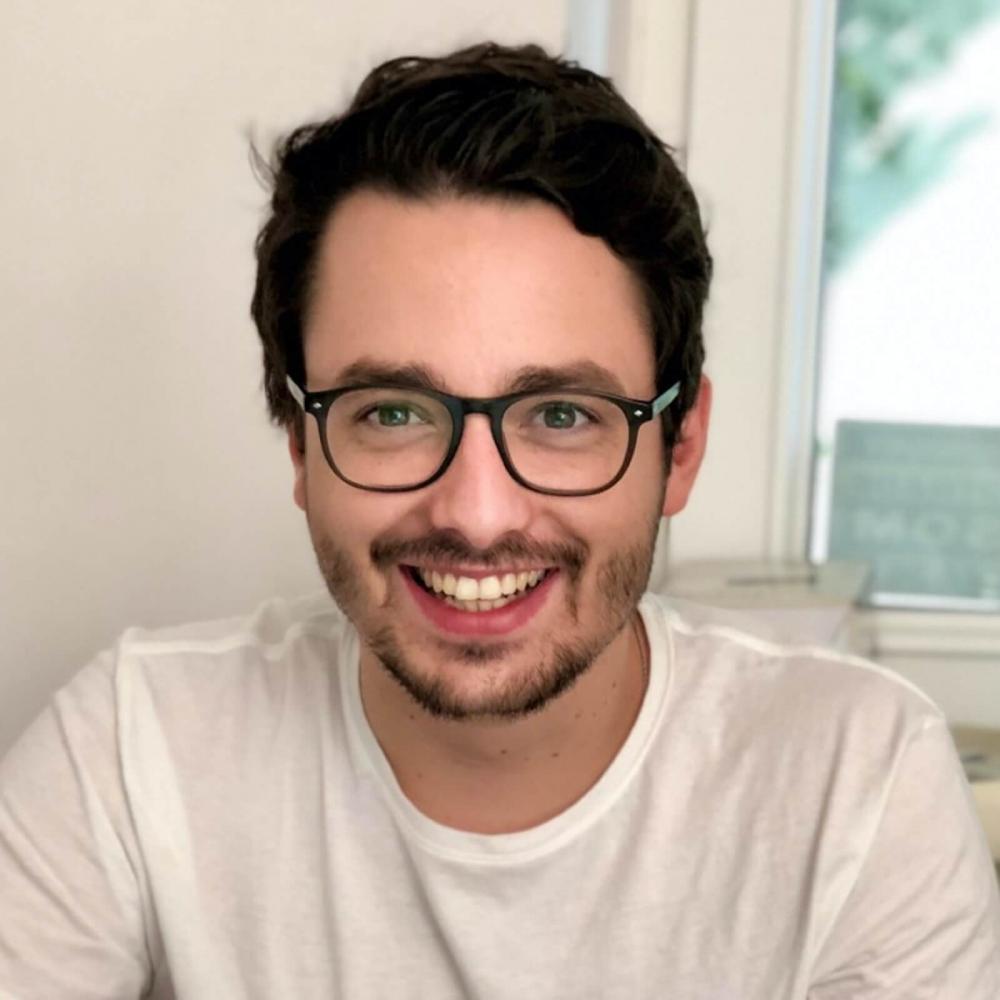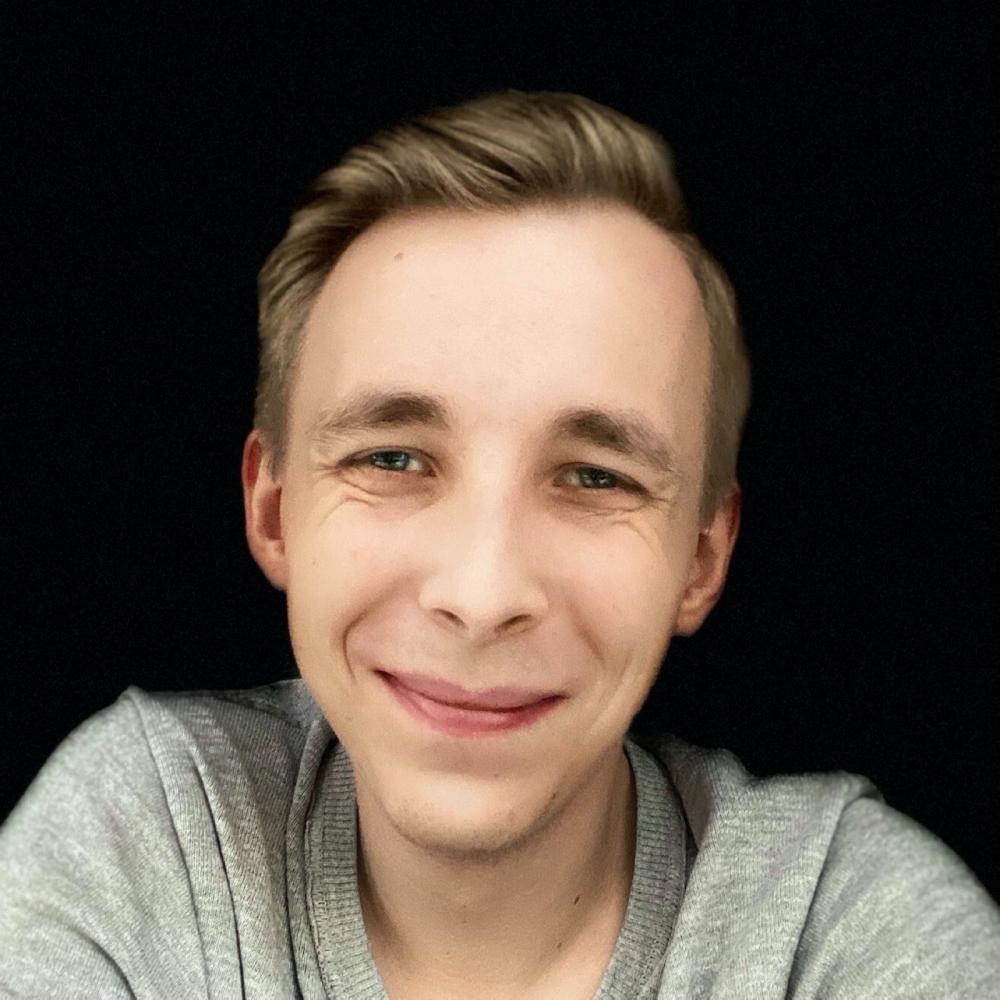Product Owner Interview: Why “Product Over Projects” is Key to Digital Health App Development
Head of Product Owners, Florian, explains why taking a product approach is vital in satisfying our team, our partners, and millions of users around the world

Florian Müller heads smartpatient's team of product owners where he is working on MyTherapy, a leading medication and disease management app used by millions of patients around the world. Read why he prefers working on one product rather than embarking on new projects frequently – and why he believes that healthcare is the ultimate challenge for digital product development.
What makes smartpatient stand out from the perspective of product owners?
I think that it’s truly special that we can focus on a single, super-relevant product. For the last eight years, we've improved MyTherapy sprint-by-sprint, to make it better and more useful for anyone taking medications. What’s also special is that MyTherapy is not only an app but also a kind of operating system for what we call “partner modules.” There are different types of modules; some provide support for specific diseases, others connect with IoT (internet-of-things) devices, some are so-called Digital Therapeutics. We are treating these modules like products in themselves. Like the underlying MyTherapy app, every feature, every screen is maintained and improved throughout its lifecycle.
The app has grown quite a bit over the past eight years. How do you organize development? What is the role of the product owner at smartpatient?
You are right, because the app has grown so much, it is divided up among our five Scrum teams. Each team is responsible for a certain range of features, almost like “sub-products”, which they own. It means that all of our Scrum teams work on improving the same big product and all work from the same backlog but have distinct responsibilities. What’s important is that product owners really are responsible for their “sub-products” and have the power to make decisions – there’s no central committee or anything like that – so the teams can make decisions in order to maximize value for our users.
For us, a product owner should not implement pre-defined specs but enable their team to create the highest possible value for users.
How is this different from other approaches, such as working on distinct ‘projects’?
I’ve heard many product owners say it’s their job to bring their company’s digital concepts to life as apps. So, once they are finished they move onto the next idea. Maybe they come back to it in a year or two years and add something - maybe.
Let's face it, many product owners are actually working on projects, not products. Once the website or app is launched, budgets are largely gone and the PO moves on.
I think there are quite some downsides to this approach because it means you are not really interested in a project after it’s done, because why should you be? Neither do you have the resource to improve it, nor does your current project leave you the capacity to do so.
But isn't it exciting to work on new stuff?
To me, newness is not interesting per se. Before a product is launched, all decisions are based on expertise, research, and hopefully some user tests - but often also a lot of gut feeling. I find it far more interesting to see how a feature performs in production and how actual people use the feature that we built, and how we can improve it. How to refactor it, maybe, or how to make the underlying structure even better, I think it’s more fun and satisfying to take care of your part of the app. I find it counter-productive to have a project-focused mindset, where it’s finished and that’s it.
Our product owners consider it much more exciting to decide on how to best improve a multi-million-user app than to implement one new concept after another.
From your perspective, do you think there is a shift away from project-based development?
I think we are seeing a shift in this direction in digital healthcare. Pharma, for example, used to have a ton of different apps from wherever. It was as if, say, for $50k you can buy an app and they’ll build whatever you want, and then it’s out there. When I was an intern four or five years ago, I scanned the market for healthcare apps. One pharma company had maybe 16 or 18 apps, others looked similar. Having seen only 1 or 2 updates, it was obvious that these apps were not maintained. The fact that they barely had any downloads or users fit the picture: No iterations and no product-market fit means no users. We are seeing that pharma companies increasingly learned their lessons. Those working with us believe that the goal is not to have an app, but to make an impact with patients. This is where we can help.
With each feature being a maintained product in its own right, how do you facilitate growing the app and developing new features, either for the underlying MyTherapy app or for partner programs?
Yeah, we always have to think about this. In general, we assign separate features to a team, but at some point, a team is basically full, so they have a maximum number of features that they can take care of. Maybe they reach a point where the features are working well and don’t need much maintenance or development – although there’s always room for improvement – but maybe things are working well with few bugs or issues. Then we may consider adding a new feature to that team. But, ultimately, there is a limit and at some point, we just need additional teams if we expand the list of features.
This is what we are seeing now, as we have big growth plans, we need more product owners and new developers to form new teams.
You mentioned maintaining features as products and there being a limit to the capacity each team can maintain. How do you decide if features are not providing enough value to warrant this continuous development?
We measure how features perform and how they pay off in certain areas of interest. For example, do they drive retention? That is a key objective for us. If a feature really has little impact and is not widely used, then yes, we will consider dropping it and freeing up a bit more capacity within the team.
What are some of the challenges and rewards that come with being a product owner working in the field of healthcare?
I believe that working in digital health in general, and on MyTherapy specifically, is uniquely rewarding. We have the privilege of helping millions of patients. Many of our users are living with one or even multiple diseases and use MyTherapy several times per day. To me, reading through users' feedback is probably most rewarding as it shows me that we are making a difference in the life these people.
Of course, there are challenges, too. For example, health apps and software are becoming increasingly regulated around the world. MyTherapy itself is not considered a medical device, but some modules are, so we need to navigate regulation such as Europe's MDR (Medical Device Regulation). Even for MyTherapy, we need to know where the line is, but luckily we have a lot of experience within our team and a dedicated legal and regulatory check-in during our design process. We also need to be careful not to break advertising restrictions. And, of course, privacy is a big topic, especially regarding health data and the medications people are taking. So, we need to minimize the data we collect and have a very conscious approach to handling any collected data as well as to managing user consents.
As a product owner, these issues need to be considered all the time, even if at face value there might not be an obvious problem. It’s definitely a challenge but it’s one that we take seriously and, as a result, the product is better and safer for it.
When you say safer, what sort of responsibilities do you think come with developing MyTherapy?
Healthcare is obviously a crucial topic, more so than, say, a game. In a game, if there is a bug that means it doesn’t work properly then, sure, it’s a problem and annoying users. But if, for example, a medical device software component does not work as intended, this is a problem with a whole different severity. So, we definitely have a responsibility to our users that the app is reliable and provides real benefits.
Aside from healthcare, I’m not sure there are many other areas of smartphone app development that carry this weight of responsibility. On the other hand, when we receive positive feedback and have people telling us that the app genuinely improves their day-to-day lives it is something to be proud of.
Finally, you mentioned that we are looking to expand the team. Can you summarize what aspects of working at smartpatient are most attractive for any prospective product owners?
Firstly, working on a meaningful product and having full responsibility within your team for your features. Having real ownership for your set of features within the app is something very rewarding.
Beyond that, we have really adopted Scrum and made it work within our organization. We follow the guidelines quite strictly and don’t have a central committee or anything trying to decide things from afar. It is a level of trust and responsibility I believe product owners really appreciate.
And I think working in healthcare software development is one of the most fascinating fields to work in. Covid-19 has proven to be a huge accelerator and we are seeing that digital tools are taking an increasingly prominent role in healthcare.
I believe that while Covid-19 may have been the ultimate kick-starter for digital health, we are just seeing the beginning. Once people have experienced the benefits, they will never go back to the old way.
We are hiring!
Are you interested in helping develop a multi-million user app and taking ownership of products used by companies such as Bayer, Novartis, and Merck? Check out our job listings here: Careers.



